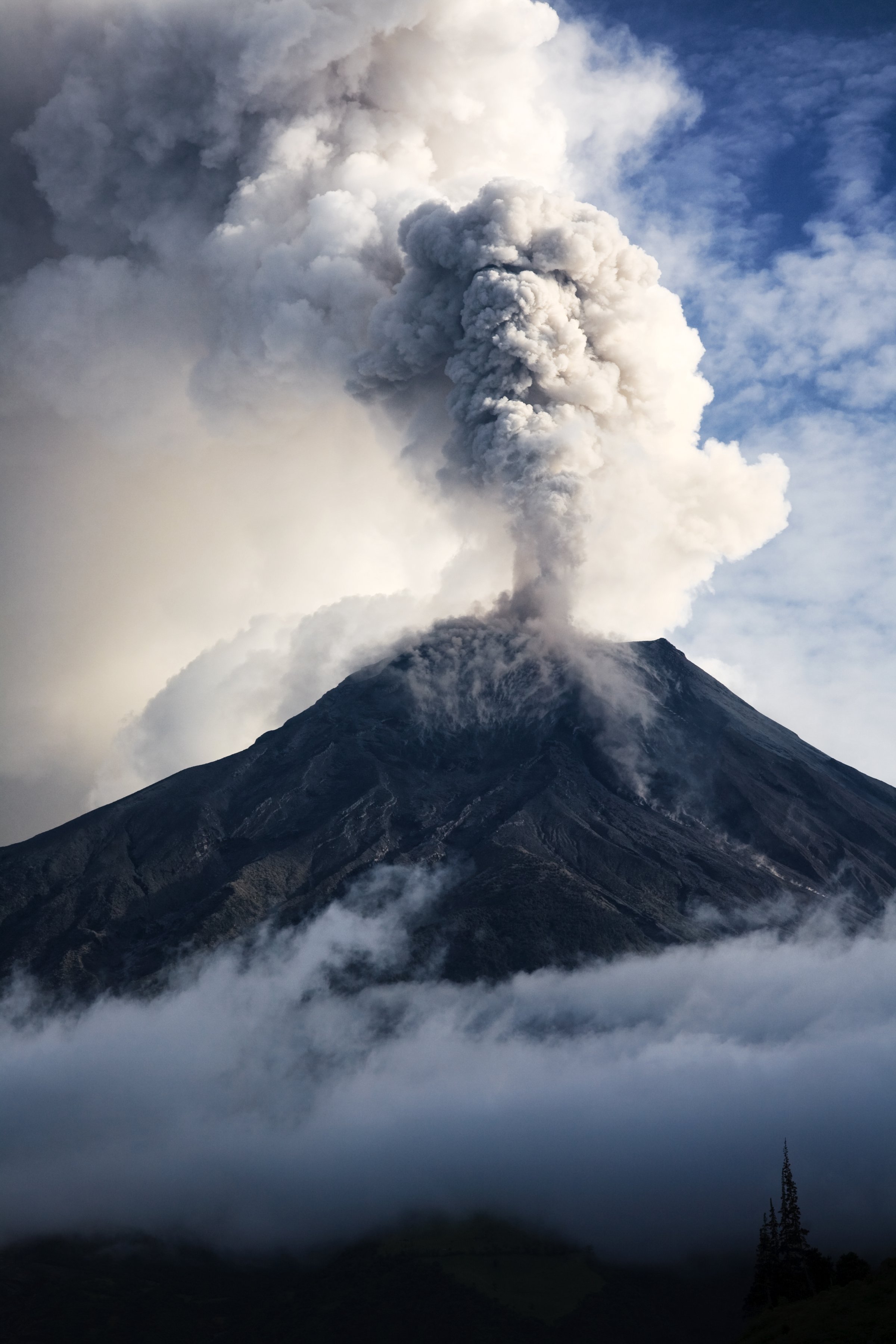
At the start of the 1980s, the question of what forced dinosaurs and huge numbers of other creatures to become extinct 65 million years ago was still a mystery. By the decade’s end, that mystery was solved: a comet or asteroid had slammed into Earth, throwing so much sun-blocking dust into the air that the planet plunged into a deep-freeze. The discovery of a massive impact crater off the coast of Mexico, of just the right age, pretty much sealed the deal in most scientists’ minds.
But a second global-scale catastrophe was happening at much the same time: a series of ongoing volcanic eruptions that dwarf anything humans have ever seen. They were so unimaginably powerful that they left nearly 200,000 square miles (518,000 sq. km) of what’s now India buried in volcanic basalt up to a mile and a half thick. And the gases and particulate matter spewed out by those eruptions, argue at least some scientists, could have played a big role in the dinosaurs’ doom as well.
How big a role, however, depends on exactly when the eruptions began and how long they lasted, and a new report in Science goes a long way toward answering that question. “We can now say with confidence,” says Blair Schoene, a Princeton geologist and lead author of the paper, “that the eruptions started 250,000 years before the extinction event, and lasted for a total of 750,000 years.” And that, he says, strengthens the idea that the eruptions could have contributed to the mass extinction of multiple species.
Schoene and his co-authors don’t claim volcanoes alone wiped out the dinosaurs; only that they changed the climate enough to put ecosystems under stress, setting them up for the final blow. “We don’t know the exact mechanism,” he admits. Volcanoes emit carbon dioxide, which could have triggered an intense burst of global warming, but they also emit sulfur dioxide, which could have caused global cooling. “What we do know,” Schoene says, “is that earlier mass extinctions were caused by volcanic eruptions alone.” The new dates, he and his co-authors believe, will help scientists understand what role these volcanoes played in the dinosaurs’ demise.
If there was such a role, that is, and despite this new analysis, plenty of paleontologists still doubt it seriously. The dating of the eruptions, based on widely accepted uranium-lead measurement techniques, is not an issue, says Brian Huber, of the Smithsonian Institution. “That part of the science is great,” he says. “It moves things forward.”
But the link between eruptions and the disappearance of species, he thinks, is invalid. “The case of the mass extinctions being caused by an impact is overwhelming,” says Huber. “One of the wonderful things about these arguments is that they’ve forced us to look really carefully at the fossil evidence, on land and at sea. We’ve accumulated a really detailed data set.”
And those data, Huber says, make it clear that the extinction rate for the 250,000 years leading up to the asteroid impact wasn’t especially large. Then, at the time of the impact: whammo. The idea that volcanoes played a significant role in this extinction event keeps coming up every so often, and in Huber’s view, “the argument has gotten very tiresome. I no longer feel the need to put any energy into it. It’s from a minority arguing against overwhelming evidence.”
For onlookers, that might seem harsh—not to mention overconfident. Sometimes a vocal scientific minority turns out to be right in its challenge to the scientific mainstream, as when Alfred Wegener argued, to much ridicule, that continents move around the Earth. And sometimes it’s dead wrong—Sir Fred Hoyle’s futile campaign against the Big Bang theory, for example.
In both cases, however, it was the accumulation of evidence that ultimately vindicated one argument and torpedoed the other. So far, the volcanic impact people have most of the torpedoes on their side.
Read next: Newly Discovered Fossils Reveal Goofy-Looking Dinosaur
More Must-Reads From TIME
- The 100 Most Influential People of 2024
- The Revolution of Yulia Navalnaya
- 6 Compliments That Land Every Time
- What's the Deal With the Bitcoin Halving?
- If You're Dating Right Now , You're Brave: Column
- The AI That Could Heal a Divided Internet
- Fallout Is a Brilliant Model for the Future of Video Game Adaptations
- Want Weekly Recs on What to Watch, Read, and More? Sign Up for Worth Your Time
Contact us at letters@time.com